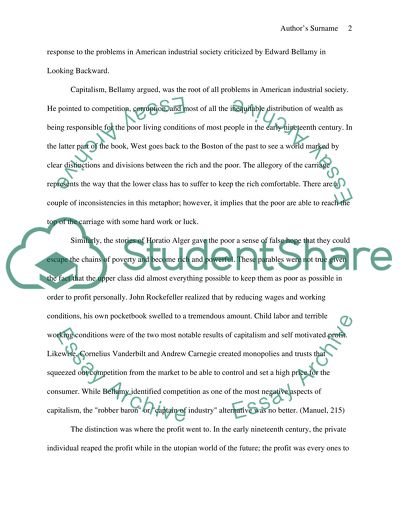Cite this document
(The Evils of Capitalism in Looking Backward by Edward Bellamy Book Report/Review, n.d.)
The Evils of Capitalism in Looking Backward by Edward Bellamy Book Report/Review. Retrieved from https://studentshare.org/politics/1529015-looking-backward-by-edward-bellamy-utopia
The Evils of Capitalism in Looking Backward by Edward Bellamy Book Report/Review. Retrieved from https://studentshare.org/politics/1529015-looking-backward-by-edward-bellamy-utopia
(The Evils of Capitalism in Looking Backward by Edward Bellamy Book Report/Review)
The Evils of Capitalism in Looking Backward by Edward Bellamy Book Report/Review. https://studentshare.org/politics/1529015-looking-backward-by-edward-bellamy-utopia.
The Evils of Capitalism in Looking Backward by Edward Bellamy Book Report/Review. https://studentshare.org/politics/1529015-looking-backward-by-edward-bellamy-utopia.
“The Evils of Capitalism in Looking Backward by Edward Bellamy Book Report/Review”, n.d. https://studentshare.org/politics/1529015-looking-backward-by-edward-bellamy-utopia.


